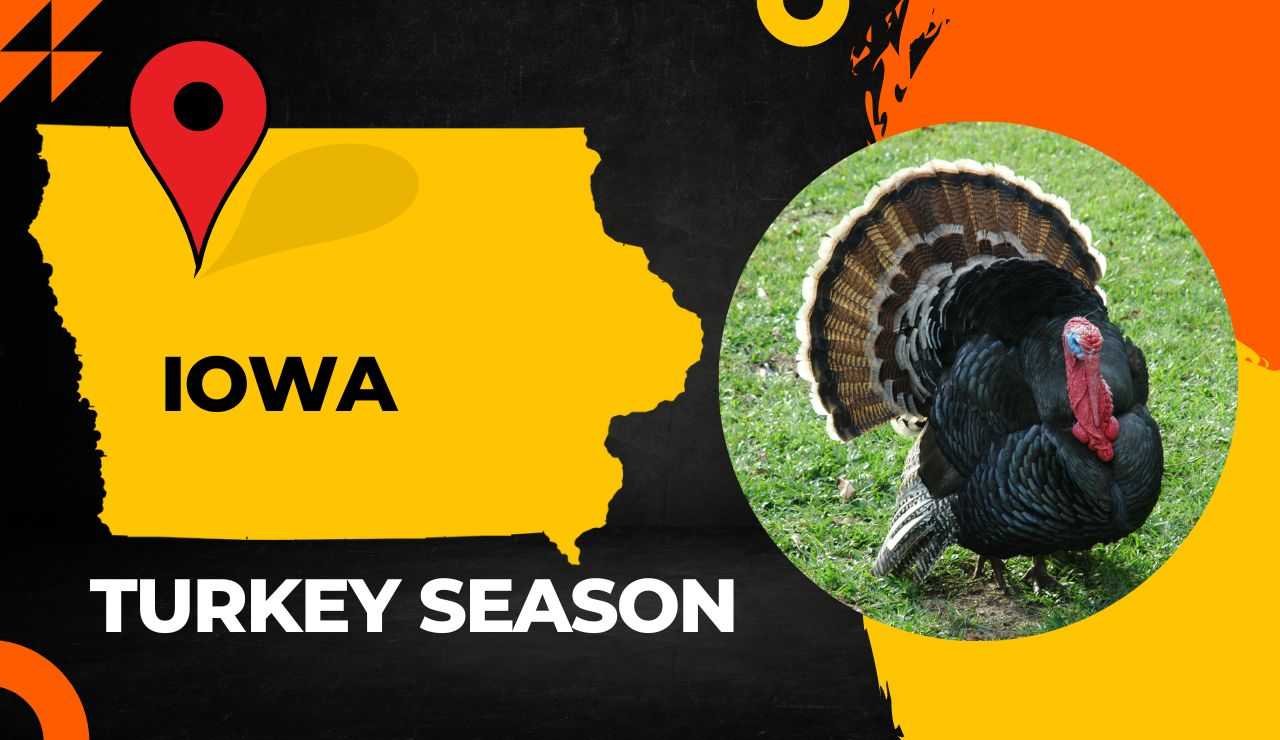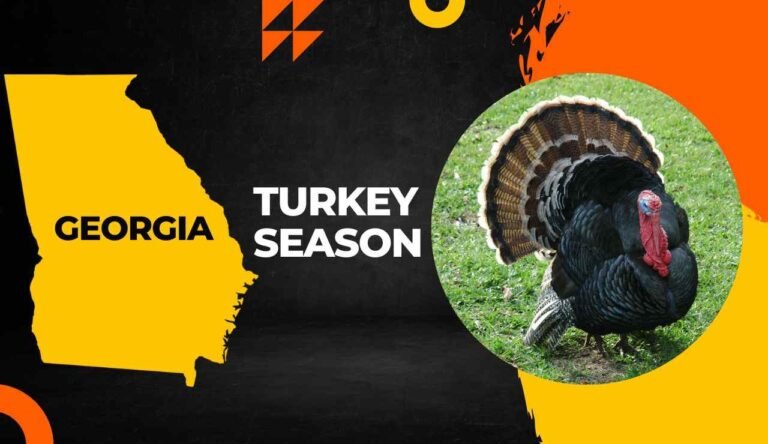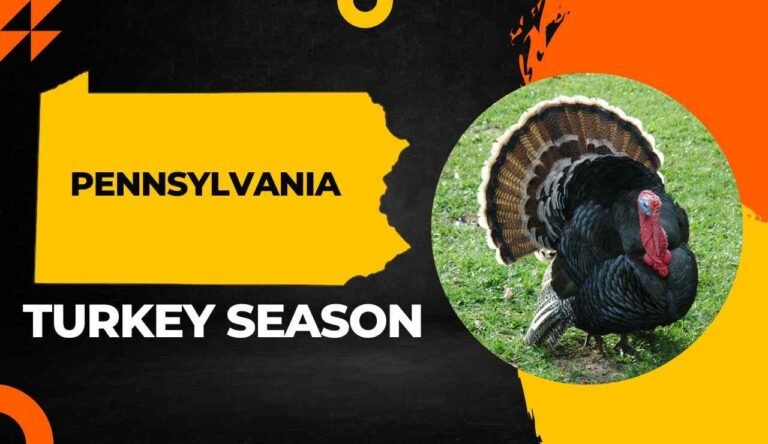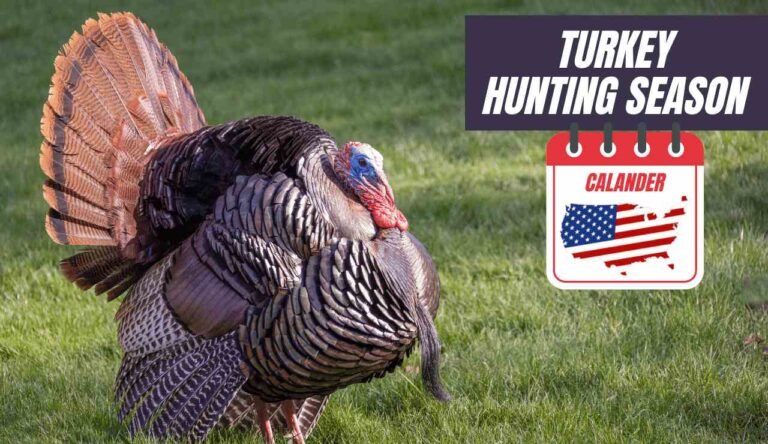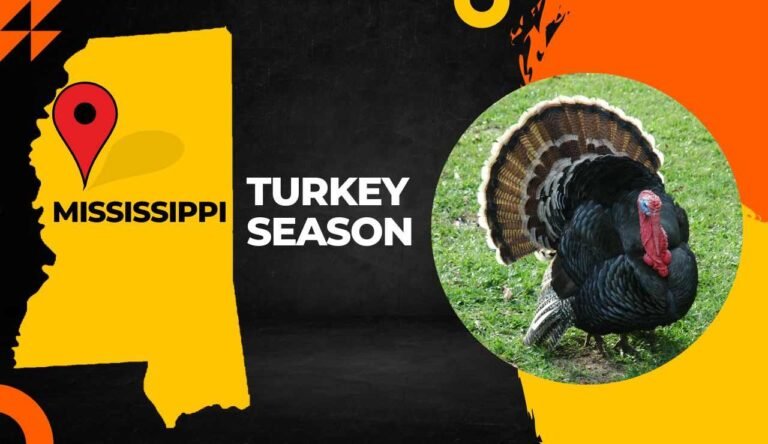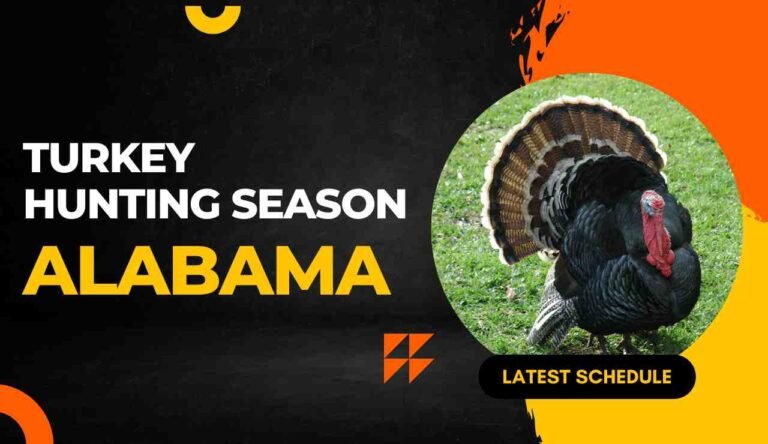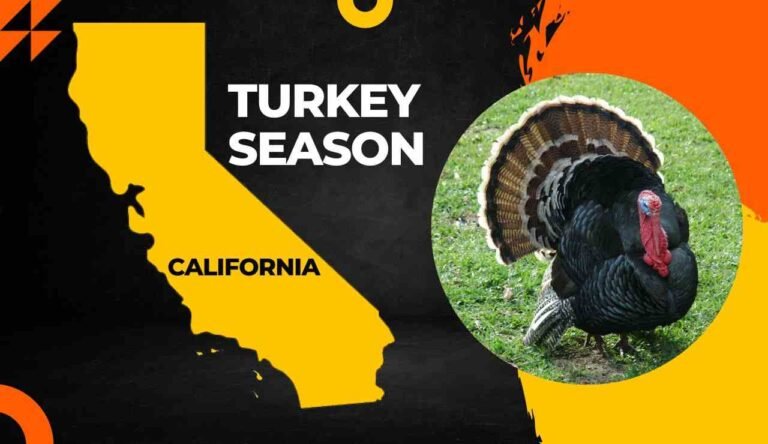Iowa Turkey Season 2026: Guide [Dates, Regulations, Bags & More!]
So, you’re thinking about chasing longbeards through the hardwoods of the Hawkeye State? Smart move. With populations thriving statewide and multiple opportunities spanning both spring and fall, this Midwestern gem delivers some seriously underrated wild bird action. Whether you’re a first-timer trying to figure out when and where you can hunt, or a seasoned caller looking to confirm this year’s dates and regulations, this guide has everything you need for the 2026 hunting year.
Let me walk you through the exact dates, licensing requirements, hunting zones, and all those nitty-gritty details that’ll keep you legal and successful in the field. We’ll cover spring gobbler seasons (that’s when those toms are fired up and vocal), fall opportunities, youth hunts, tag costs, and even some frequently asked questions I’ve gathered from fellow hunters over the years.
🗓️ Quick Season Overview: What’s Open When?
Here’s your at-a-glance reference for what birds you can chase and when during the 2026 period:
| Hunt Type | Season Dates | Legal Methods | Notes |
|---|---|---|---|
| Fall Archery | October 1 – December 5, 2025 December 22, 2025 – January 10, 2026 | Bow/Crossbow (with permit) | Either sex; statewide for residents |
| Fall Gun/Bow Combo | October 13 – December 5, 2025 | Shotgun, bow | Zone-specific for residents; nonresidents NOT eligible |
| Spring Youth | April 10-12, 2026 | Shotgun, bow | Residents only, age 15 & under |
| Spring Season 1 | April 13-16, 2026 | Shotgun, bow | Bearded birds only |
| Spring Season 2 | April 17-21, 2026 | Shotgun, bow | Bearded birds only |
| Spring Season 3 | April 22-28, 2026 | Shotgun, bow | Bearded birds only |
| Spring Season 4 | April 29 – May 17, 2026 | Shotgun, bow | Bearded birds only; longest window |
All gun hunts run from half-hour before sunrise to sunset. Archery extends until half-hour after sunset—giving you those golden evening minutes when gobblers might be heading to roost.
📋 All Spring & Fall Hunting Opportunities: Detailed Breakdown
Let’s dive deeper into each opportunity so you can plan your trips accordingly.
Fall Hunting (2025)
The autumn woods offer a completely different experience. No gobbling, but family flocks and bachelor groups make for exciting spot-and-stalk or ambush setups.
| Season Type | Dates | Zone Info | Weapon | Eligibility |
|---|---|---|---|---|
| Archery-Only | Oct 1 – Dec 5, 2025 | Statewide | Bow/Crossbow* | Residents only |
| Archery-Only (Split) | Dec 22, 2025 – Jan 10, 2026 | Statewide | Bow/Crossbow* | Residents only |
| Gun/Bow Combo | Oct 13 – Dec 5, 2025 | Zones 4-9** | Shotgun or Bow | Residents only |
Zone Notes: Fall gun/bow permits are zone-specific (Zones 4, 5, 6, 7, 8, and 9). You’ll select your zone when purchasing your tag. Archery-only permits work statewide.
Crossbow Use: Only legal for physically handicapped hunters with a special permit. Standard crossbows must be shoulder-fired (no pistol-grip models).
Residents can purchase up to two fall permits, mixing archery and gun/bow licenses based on availability and quotas.
Spring Hunting (2026)
Here’s where things get exciting. Toms are strutting, gobbling, and looking for love—making them more vocal and vulnerable to calls.
| Season | Dates | Eligibility | Bag Limit |
|---|---|---|---|
| Youth Hunt | April 10-12, 2026 | Residents age 15 & under | 1 bearded bird |
| Season 1 | April 13-16, 2026 | Residents & Nonresidents | 1 bearded bird per tag |
| Season 2 | April 17-21, 2026 | Residents & Nonresidents | 1 bearded bird per tag |
| Season 3 | April 22-28, 2026 | Residents & Nonresidents | 1 bearded bird per tag |
| Season 4 | April 29 – May 17, 2026 | Residents & Nonresidents | 1 bearded bird per tag |
Residents can buy up to two spring permits: one for Youth/Season 1/2/3, and a second for Season 4. That’s a maximum of two longbeards during the spring if you’re lucky and skilled enough.
Important: Youth hunters under 16 need to be accompanied by a licensed adult (21 or older) who must remain within arm’s reach. The adult cannot carry a weapon during the youth hunt.
🕊️ Related Game Bird Opportunities
While you’re out there for gobblers, don’t forget about other feathered targets that share the same habitat:
- Pheasant: Primetime runs October through January—a perfect combo with fall bird hunting.
- Quail: Northern Bobwhite populations are limited but huntable in southern counties.
- Ruffed Grouse: Found in northeast bluff country woodlands; October through January.
- Waterfowl: Geese and ducks overlap with fall archery dates—consider a mixed-bag hunt.
Many hunters I know like to scout for spring gobblers while chasing pheasants or deer during the fall months. You’re already in the timber, so why not pattern those roost trees?
📜 Hawkeye State Regulations You Need to Know
Weapon & Equipment Rules
Shotguns:
- Must use shot sizes 4, 5, or 6 only
- No rifles or handguns (except muzzleloading pistols during specific deer seasons—not applicable for birds)
- Plugged to 3-shell capacity
Archery:
- Broadheads must be at least 7/8 inch wide
- No explosive tips or pods
- Crossbows illegal unless you have a physical disability permit
Decoys & Calls: Fully legal and highly recommended. Electronic calls are prohibited—stick to mouth calls, box calls, and friction calls.
Hunting Conduct
- Shooting hours: Gun hunters must wait until half-hour before sunrise; wrap up by sunset. Bowhunters get until half-hour after sunset.
- Daily bag: One bearded or male bird per valid tag.
- Harvest reporting: You must report your harvested bird by midnight the day after tagging it. Do this online through the Go Outdoors Iowa portal.
- Tagging: Attach your transportation tag immediately after harvest. Don’t leave home without those tags!
Hunter Orange Requirements
Good news—there’s no blaze orange requirement specifically for spring bird hunting. However, during fall seasons that overlap with deer firearms hunts, you must wear at least one article of solid blaze orange visible from all sides if you’re in a deer hunting zone. Check the specific dates and zones carefully.
🎟️ License & Tag Fees for 2025-2026
Here’s what you’ll pay to get in the game (prices include the required habitat fee):
Resident Fees
| License/Tag Type | Cost |
|---|---|
| Annual Hunting License + Habitat Fee | Approx. $22.00 |
| Resident Spring/Fall Tag | $28.50 each |
| Landowner/Tenant Tag | $1.00 |
| Youth License (under 16) | Reduced or free depending on age |
Nonresident Fees
| License/Tag Type | Cost |
|---|---|
| Annual Hunting License + Habitat Fee | Approx. $119.00 |
| Nonresident Spring Tag | Included in $119 total |
| Fall Tags | Not available to nonresidents |
Pro Tip: If you’re a landowner or tenant actively farming the land, you qualify for that dirt-cheap $1 tag—one of the best bargains in hunting. You’ll still need the base hunting license and habitat fee, but that tag discount is sweet.
Nonresidents need to apply for spring tags (applications typically open in December and close in early January), and tags are awarded via lottery if demand exceeds quotas. Residents can usually buy tags over-the-counter until quotas fill.
🌾 Zone Maps & Where to Hunt
The state divides fall hunting into six management zones (Zones 4-9) to maintain healthy populations and distribute hunting pressure. Spring hunting is generally less restrictive, with most areas open statewide for residents and nonresidents alike.
Finding Public Land:
Check out the Iowa Public Hunting Atlas for an interactive map showing over 763,000 acres of public hunting grounds. Wildlife Management Areas (WMAs), state forests, and public access areas managed by county conservation boards are your best bets.
Popular counties for bird hunting include:
- Northeast: Allamakee, Clayton, Dubuque (bluff country)
- Southeast: Lee, Van Buren, Des Moines (river bottoms)
- Central: Boone, Story, Polk (mixed ag and timber)
- Southern tier: Decatur, Wayne, Appanoose (heavily wooded)
For context, if you’re hunting birds in neighboring states, you might want to check out opportunities in Nebraska to the west or compare regulations with Illinois across the Mississippi River. Both offer unique habitat and slightly different timing that could extend your hunting calendar.
🎓 License Requirements & Hunter Education
Who Needs Hunter Ed?
Anyone born after January 1, 1972 must complete an approved hunter education course before purchasing a hunting license in the Hawkeye State. The course is typically around 10 hours and covers firearm safety, wildlife identification, ethics, and regulations.
Where to Get Certified:
- Iowa Hunter-Ed Online Course – Complete the coursework online, then attend a field day for hands-on instruction.
- In-person classes are offered statewide through the Iowa DNR—check the Go Outdoors Iowa website for schedules near you.
Age Requirements:
- You must be 11 years or older to enroll in hunter education.
- Must be 12 years old to receive a hunting license (with exceptions for youth bird/deer tags for those under 12 when accompanied by a licensed adult).
The National Wild Turkey Federation also offers mentored hunting programs and resources for first-timers—definitely worth looking into if you’re new to the sport.
❓ Frequently Asked Questions
Q: Can I hunt birds on my own property without a license?
A: Landowners and tenants may hunt on their own land, but you still need the appropriate hunting license and habitat fee. The only break you get is the reduced $1 tag cost instead of $28.50. Special permits for deer and birds are still required.
Q: How many tags can I buy?
A: Spring: Residents can purchase up to two tags (one for Youth/Season 1/2/3, another for Season 4). Fall: Residents may buy up to two fall permits based on availability.
Q: Are nonresidents allowed to hunt fall birds in Iowa?
A: Nope. Fall hunting is residents-only. Nonresidents can only participate in spring seasons.
Q: Can I use a crossbow?
A: Only if you have a physical disability and obtain a special permit. Crossbows must be shoulder-fired; no pistol-grip models allowed.
Q: What’s the best time of day to hunt spring gobblers?
A: Early morning right off the roost is prime time—typically the first 2-3 hours after legal shooting light. Midday can be slow, but activity often picks up again in late afternoon as birds move toward roosting areas.
Q: Do I need to wear hunter orange?
A: Not specifically for spring bird season. During fall hunts overlapping with deer firearms seasons, you must wear blaze orange if hunting in deer zones.
Q: Where do I report my harvest?
A: Online at Go Outdoors Iowa by midnight the day after you tag your bird. It’s quick and easy—don’t skip this step or you could face a violation.
🏁 Wrapping It Up
There you have it—everything you need to plan a successful 2025-2026 hunt in the Hawkeye State. From the crisp fall mornings chasing quiet family groups with your bow, to the heart-pounding spring mornings when a fired-up tom answers your call, Iowa offers diverse and exciting opportunities for hunters of all skill levels.
Make sure you’ve got your licenses and tags sorted early (especially if you’re a nonresident applying for spring draws), study those zone maps, and don’t forget to report your harvest. Most importantly, respect the resource, hunt ethically, and enjoy every moment in the field—whether you punch a tag or not.
- Louisiana Turkey Season 2026: LA Turkey Hunting [Dates, Regulations, Licenses & More] - January 5, 2026
- Kentucky Turkey Season 2026: Latest Hunting Dates, Regulations & Licenses! - January 5, 2026
- Kansas Turkey Season 2026-2027: Latest Dates, Licenses, and Regulations Now Available! - January 3, 2026
